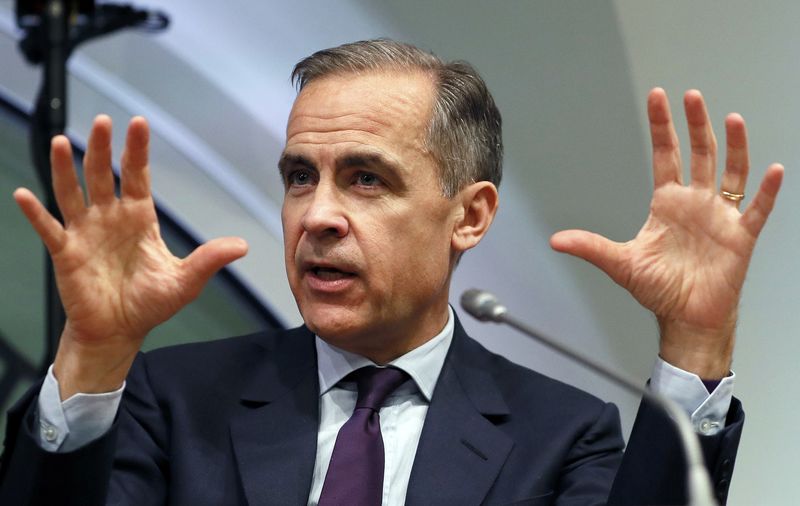By William Schomberg and David Milliken
LONDON (Reuters) - British inflation shot past the Bank of England's 2 percent target last month, potentially adding to uneasiness among some officials at the central bank about keeping interest rates near zero.
Consumer prices rose by a stronger-than-expected 2.3 percent, the biggest annual increase in nearly three-and-a-half years, pushed up by an increase in global oil prices and the impact of the Brexit vote on sterling.
Last week, one of the BoE's policymakers voted to raise record-low borrowing costs because of growing inflation pressures and the economy's resilient response so far to Britain's decision last June to leave the European Union.
Other policymakers said they could soon follow suit, depending on inflation and growth data.
February's rise represented the first time in more than three years that inflation topped the BoE's target, but Governor Mark Carney said it was important not to overreact to a single month's data.
Carney has previously warned of "twists and turns" ahead for Britain's economy as the country prepares to leave the EU, a process Prime Minister Theresa May will start next week.
And most BoE policymakers have noted how slowly wages are growing, another reason to keep rates low.
But Ruth Gregory, an economist at Capital Economics, said the latest data would do little to reassure those BoE rate-setters who are more concerned about higher inflation.
"If the economy continues to hold up well as we expect, interest rates could be rising rather sooner than the markets have been anticipating," she said in a note to clients.
The increase in the annual inflation rate between January, when it stood at 1.8 percent, and February was the steepest since October 2012, the ONS said.
Economists taking part in a Reuters poll had expected inflation would rise to 2.1 percent.
Sterling hit its highest level against the U.S. dollar in three weeks after the data. British government bond prices fell.
HIT TO CONSUMERS, HELP TO FACTORIES
While the fall in the value of the pound has pushed up inflation, it has also given a boost to manufacturers whose exports are more competitive in foreign markets. A recovery in the global economy is also helping British factories.
Optimism among British factories surged to a 22-year high in March as exports rebounded, a survey showed.
Britain's vote to leave the EU last June caused the pound to slide, pushing up the price of imports. Furthermore, global oil prices have risen, adding to the squeeze on the spending power of households.
The BoE has said it expects inflation will peak at 2.8 percent in the second quarter of next year, but many economists say it is likely to hit 3 percent. The BoE underestimated the extent of inflation's rise after the global financial crisis in 2007-09 which also caused a sharp fall in sterling.
Inflation has also accelerated in the United States and elsewhere in Europe.
The ONS said transport costs, which were pushed up by rising fuel costs, were the biggest driver of inflation in February.
Also, food prices rose in annual terms for the first time in more than two-and-a-half years. Excluding oil and other volatile components such as food, core consumer price inflation rose to 2.0 percent, above the Reuters poll forecast of 1.8 percent.
Data on factory gate prices underscored the inflationary pressures still in the pipeline. Output prices rose 3.7 percent in annual terms, the strongest increase since the end of 2011.

Prices paid by factories for materials and energy surged with the cost of crude oil, almost doubling from a year earlier.